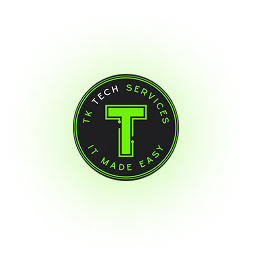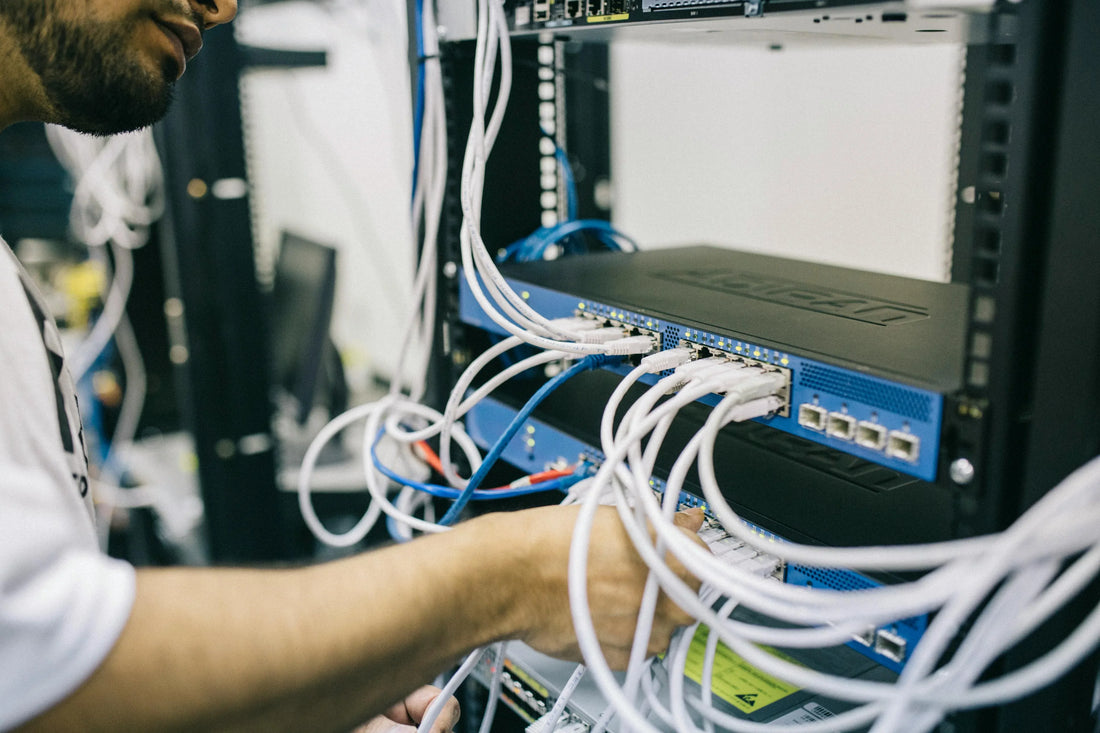Setting up a reliable network is one of the most important steps in building a successful small business. A properly designed network enables your employees to share data, communicate effectively, and access the internet, allowing your business to run efficiently.
But where do you start? If you're a small business owner looking to set up a network, this guide will help you understand the essential components you’ll need and how they work together.
1. Modem
The modem is the starting point for any business network. It connects your local network to the internet. When choosing a modem, consider the type of internet connection you have, such as DSL, cable, or fiber-optic.
- Cable Modem: Ideal for businesses using cable internet services.
- DSL Modem: Works with DSL internet connections, typically provided through phone lines.
- Fiber Modem: For high-speed fiber-optic internet, which is becoming more common in business settings.
Ensure your modem supports the speed and bandwidth you require for your business operations. For a small business, a modem that supports higher bandwidth will prevent slowdowns as more employees access the network.
2. Router
The router is the heart of your business network. It connects all your devices to the internet and allows them to communicate with one another.
- Wired Routers: These provide stable, fast connections through Ethernet cables. Wired routers are ideal for businesses that prioritize speed and security.
- Wireless Routers (Wi-Fi): Wireless routers offer more flexibility, allowing employees to connect to the network without being tethered to a desk. However, wireless networks can sometimes be slower and more prone to interference.
Most modern routers combine both wired and wireless capabilities. When choosing a router, ensure it supports high-speed internet and has enough bandwidth to handle the number of devices connected to it. For larger office spaces or environments with many users, a router with dual-band or tri-band capabilities will help maintain fast and reliable connections.
3. Switches
Switches are used to connect multiple devices on a local area network (LAN), such as computers, printers, and servers. Unlike a router, which directs traffic between your network and the internet, a switch manages traffic between devices on the same network.
There are two types of switches:
- Unmanaged Switches: These are plug-and-play devices that require little to no configuration. They are ideal for small networks that don’t need advanced features.
- Managed Switches: These allow for more control over your network traffic, including monitoring, configuring settings, and prioritizing certain types of traffic. Managed switches are useful for businesses that need greater control over their network for security or performance reasons.
For most small businesses, unmanaged switches are sufficient. However, if your business grows or requires advanced networking capabilities, investing in a managed switch may be necessary.
4. Access Points (APs)
Access Points are devices that extend your wireless network coverage. They are especially useful for businesses operating in large offices or buildings where a single wireless router can't provide sufficient coverage.
- Standalone Access Points: These are separate devices that connect to your router via Ethernet cables. They’re great for businesses that need to extend Wi-Fi to different floors or remote areas.
- Mesh Wi-Fi Systems: Mesh systems consist of multiple access points that work together to provide seamless coverage throughout your entire office. They are more advanced and provide better performance than standalone APs, but they can be more expensive.
Consider access points if your wireless network doesn't reach all areas of your business space or if you have a large number of users relying on Wi-Fi.
5. Firewall
A firewall is essential for protecting your network from outside threats, such as hackers and viruses. It acts as a barrier between your network and the internet, filtering incoming and outgoing traffic based on predetermined security rules.
There are two types of firewalls:
- Hardware Firewalls: These are physical devices that sit between your network and the internet. They provide robust protection and are ideal for small businesses with sensitive data or those that require advanced security.
- Software Firewalls: These are installed on individual computers or devices within your network. While they offer protection, they are not as comprehensive as hardware firewalls.
For small businesses, a hardware firewall integrated into your router often provides sufficient protection. However, using both hardware and software firewalls can offer an extra layer of security, particularly if your business handles sensitive information.
6. Ethernet Cables
Though many businesses opt for wireless networks, wired connection still wins when it comes to stability and speed. Ethernet cables connect devices directly to your router or switches, providing a reliable connection.
When setting up a wired network, you’ll typically use Cat5e or Cat6 Ethernet cables, which are designed to support high-speed data transfer. For most small businesses, Cat6 cables are ideal as they support higher speeds and future-proof your network for upcoming technology.
7. Servers
While small businesses may not need large, dedicated servers right away, having one can be beneficial as your company grows. A server centralizes data storage, manages network resources, and allows multiple users to access files and applications securely.
- File Servers: These store documents, files, and data in one central location, making it easy for employees to collaborate.
- Application Servers: These host software applications used by your team, ensuring they run efficiently and can be accessed by multiple users simultaneously.
- Email Servers: These handle email communication for your business, offering more control over your company’s email system.
For businesses just starting, cloud-based servers can offer a cost-effective alternative to physical servers, reducing the need for maintenance and upkeep.
8. Network Security
Keeping your small business network secure is vital to prevent data breaches and cyberattacks. In addition to firewalls, there are other security measures you should implement:
- Antivirus and Anti-Malware Software: Install these on every computer connected to your network to protect against malicious software.
- Virtual Private Network (VPN): A VPN provides secure remote access to your network, allowing employees to connect safely from outside the office.
- Network Monitoring Tools: These tools help you keep an eye on network traffic, detect suspicious activity, and monitor the overall performance of your network.
Ensuring your network is secure from the outset will protect your business and its data from potential threats.
9. Power Backup (UPS)
A reliable power supply is often overlooked when setting up a business network. Investing in an uninterruptible power supply (UPS) ensures that your network equipment, such as modems, routers, and switches, remain operational during power outages or surges.
A UPS provides temporary power to your devices during an outage, allowing you to safely shut them down and prevent data loss or hardware damage. It's a small but essential investment to keep your business running smoothly during unexpected disruptions.
10. Cloud Services
More small businesses are turning to cloud services to manage their networks. Cloud-based systems offer flexibility, scalability, and cost savings by reducing the need for physical hardware.
- Cloud Storage: This allows you to store and access files remotely, reducing the need for on-site data storage.
- Cloud-Based Network Management: Many modern network setups use cloud platforms to manage routers, switches, and access points, enabling remote configuration and monitoring.
- Backup Solutions: Cloud-based backups ensure that your data is safe and easily recoverable in case of hardware failures or cyberattacks.
For small businesses, cloud services provide flexibility and cost savings, while offering the ability to scale your network as your business grows.
Conclusion
Setting up a network for your small business doesn’t have to be complicated. By understanding the essential components such as modems, routers, switches, access points, firewalls, and cables, you can create a reliable and secure network that meets your current needs and scales as your business grows.
At TK Tech, we specialize in providing customized small business network setup. Whether you need a simple network or a more advanced system with cloud integration and enhanced security, we’ve got you covered. Contact us today to learn how we can help build the ideal network for your business.

